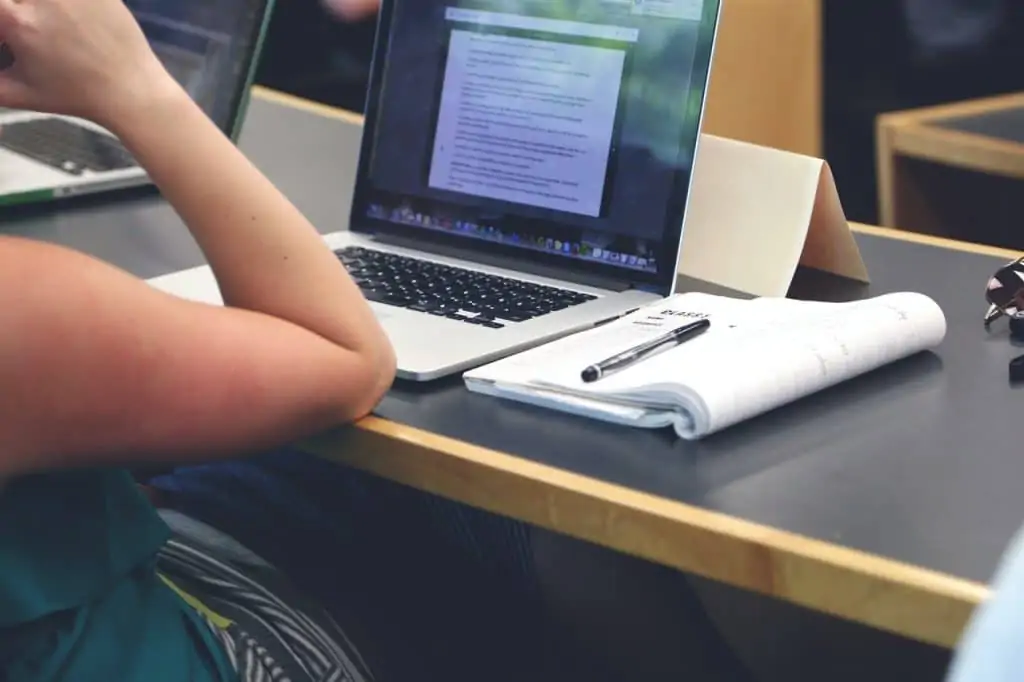Why Study Smart?
You have probably already heard this mantra over a million times – you need to study smarter, not harder. But when you have to cram for an exam, you will probably be studying both harder and smarter. Yikes – this sounds like a migraine waiting to happen. But have no fear! We’ve created a tentative list of over thirty tips and techniques on how to study smart.
These study secrets are for any high school or university student hoping to learn how to study well and fast – regardless of the subject matter or difficulty. These study tips should be helpful for all students – from Ivy League-bound high school seniors to college freshman trying to survive higher education. We’ve compiled a list of tried and true study methods that should put you on the path to success.
Please enjoy the following guide on how to study smart – containing 33 tips and techniques that should prime you for academic success through high school, university, and beyond. If you enjoy our list, please be sure to check out our other articles tailored to specific subjects and exams – such as the AP examinations.
Advice on How to Study Well for Exams in One Day
1. Find your happy place and stay there
Start by setting aside a special place to study – whether that is your kitchen table or a tiny library study nook. Be a fashion coward and wear your most comfortable clothes as possible. Try to find a place with minimal sensory distractions – such as talkative roommates to unsightly fluorescent lighting. We highly recommend wearing headphones while you study, regardless of the noise quality of your study space. Lighting candles or incense can also be calming. However, please remember to be mindful of putting forth any strong smells if you’re studying in a shared space!
2. Fuel your brain, but don’t go crazy!
Try not to study on an empty stomach. Studying can be an agitating task already – so why try to attempt it if you’re going to be hangry? On the other hand, make sure not to overeat, as this can potentially make you too sleepy to concentrate on studying. If you are a coffee drinker, please exercise caution with how much caffeine you consume. Coffee is a diuretic that will interrupt your studying with frequent unplanned bathroom breaks. Additionally, drinking too much coffee can have the opposite effect, where it makes you sleepier! Remember to always think of your stomach’s well being. You don’t want to have any rumbles in your tummy the day of an important exam!
3. Pavlov condition yourself to study your best
This is a study technique we developed from our own experiences. Inspired by the Russian psychologist who conditioned dogs to drool in response to the sound of a bell, we developed something similar to help you study. Every time you sit down to study for an exam, try listening to the same song over and over again as you settle into your study session. After several study sessions initiated songs such as this one, your brain should enter peak focus within thirty seconds of turning it on. Try it out and see if you can trick your brain into focusing! We recommend classical music, but any song that tickles your spinal cord should still do the trick.
4. Put away the books
But don’t put them entirely out of sight. The first thing you should do before digging deep into your textbooks and class notes is to whip out a blank sheet of paper. Then, try to write down everything you know for sure that will be covered on the exam. Usually, blind recollection will only yield a basic outline of your impending review. Did you find that you could only remember the basics? No worries – this may be the best place to start because what you’ve created is a study guide for the exam.
5. Find and conquer your nemesis
After you’ve created your rough study guide, make sure you have included all information from your syllabus. Then, pinpoint the topics that fill you with existential dread – the material that has always given you the most trouble. Necessarily, you’re only going to grow sleepier as you study, so you might as well try to attack the trickiest portions of the exam first.
6. Create a mock exam
The best way to outsmart your teacher is to think like your teacher. Consider both your study guide and syllabus and then try to translate each topic into an essay question or some multiple-choice questions. We recommend attempting your custom-made exam immediately after you feel delighted with your study session. And if you do well on your mock exam, you should feel confident enough to quit studying and …
7. Get a good night’s rest!
While this piece of advice is the most obvious tip, it’s also the easiest to ignore in favor of cramming for an exam. Although the total amount of sleep required for optimal test taking varies among individuals, it is recommended to get between 7-9 hours of sleep. No matter how much you’ve studied, a sleepy student is a forgetful student. At peak exhaustion, you are lucky even to remember your own name. If you can’t begin to do that, how can you possibly be expected to remember the names of Civil War battles or Renaissance painters?
Tips on How to Study Fast and Effectively
1. Flashcards, flashcards, and more flashcards
This classic study technique is tried and true. What better way to absorb information than this rapid-fire recall technique? Are you worried about saving paper? No worries! There are many websites devoted to creating flashcards without putting any strain on the rain forest. We recommend sites such as Flashcardmachine or Quizlet, the latter that contains many pre-made flashcard sets for a variety of subjects.
2. Don’t sweat the small stuff
It’s tempting to want to review the exam material that you’re most comfortable. Reviewing more accessible content gives you a false sense of security that you likely crave before a particularly rough exam. When you find yourself pressed for time, please dedicate minimal time to reviewing the materials that you have already mastered and felt confident expressing. Instead, pay far more attention to the areas that require more attention.
3. Teach your pet
Imagine that Fido or Fluffy also has to take the exam with you the following morning. How would you go about creating a crash course in your exam material? Once you’ve grown confident with the content, try to condense the entirety of your exam materials into a five-minute crash course for someone who has never set foot in the classroom.
4. Sleep between the lines
This is probably the most controversial tip. However, some studies suggest that sleeping in between studying sessions promotes higher learning recall. Proceed with caution, however, as it’s easy for a 10-minute snooze to turn into a three-hour snooze session.
5. Write by pen and paper
Sometimes the old-fashioned methods are the most tried and true. Research shows that writing by hand, especially when studying, can be the most effective method of learning.
6. Don’t multitask
While multitasking gives us the illusion of getting more work done in half the time, the quality of our work lessens. Keep this in mind when studying for exams last minute. When focusing on one topic, make sure it’s the only item you’re focusing on.
Speed-reading can be a valuable skill when trying to absorb a high quantity of new information. There are many speed-reading apps available online that can modify text files to fast-paced scripts to help people practice their speed-reading skills. However, make sure not to compromise comprehension in favor of having a higher reading pace. Speed-reading is only valuable when the reader retains the information they’ve covered, regardless of how quickly.
How to Study Effectively in High School: Our Top Tips
1. Pace yourself
High school is a marathon, not a race. Trying to cram for exams in high school often backfires, especially if your exam is later in the day and you have to force yourself to stay awake throughout the day. For this reason, it’s important to pace yourself with studying throughout the school week to avoid pulling all-nighters and accidentally falling asleep in your exams.
In high school, you could likely be forced to study for several exams on the same night. That is a major bummer. Still, this is a beautiful opportunity to practice your time management skills. You might have to consider two entirely different subjects within 24 hours. For this reason, please be sure to fully dedicate your undivided attention to only one topic at a time to minimize confusion and crossover between the two.
3. Make new fiends but keep the old
Many teachers are generous enough to provide study guides and past exams to help students study for upcoming exams. Treating a practice exam as if it were the real thing is not only a great way to practice reciting the learning material, but also a great way to lessen your test taking anxiety. However, this tip mostly applies to standardized tests, such as the ACT/SAT or any of the AP examinations. Standardized tests are generous in that they routinely publish old exams to help new students become familiar with the formatting and types of questions that they may ask. Practice makes perfect!
4. Stay after class
The thought of staying after school can be a major bummer. However, teachers often dedicate additional hours outside of regular class hours to help students truly master the course material. If you ever find yourself falling behind or needing more clarification on some topics, staying after school to get additional help is always encouraged. Also consider getting a tutor to help you in any of your weaker subjects.
5. Be an active learner
Don’t be afraid to ask questions during class. More so, don’t be afraid to answer questions your teacher may throw at you during class. Even if you’re wrong, your teachers will be impressed by your tenacity and willingness to learn. Your questions might even help your peers better learn the material by asking questions they may be too shy to ask.
6. Take advantage of study halls
It is very tempting to use study halls as an opportunity to catch up on social media or gossip with friends. However, study hall exists for a self-evident purpose – to study! Think of it this way – the more studying you do during the day, the less you have to do at night and the more precious ZZZs you get the night before a big exam.
7. Don’t forget to do your homework
While tedious, consistently doing your homework forces you to recall and synthesize what you’ve been learning in class. Not only that, but homework points can also make or break your final grade in a class, thereby putting less pressure on your final exam score.
8. Be creative
Chances are your teachers have already asked you to show what you’ve learned in class through some creative media. You have probably done creative projects in the past – like a collaborative video or a quirky group presentation. Creativity definitely goes a long way in studying. For example, mnemonic devices can help you identify with general information, thereby making it easier to remember material long term.
How to Study Effectively in University: Our Top Tips
1. Exercise excellent time management skills
If you thought cramming for exams in high school was stressful, cramming for exams in college is almost Herculean. One of the significant perks of college is that you’re not cooped up in the same building from 7-3 (even longer if you count extracurricular activities). Some days you might not even have to set foot in a classroom at all! This perk can also be very problematic. The false sense of uninterrupted study time can easily feed our inner procrastinator. The best way to fight this temptation is to limit free time as much as possible. For example – start working on a paper several weeks before it’s due. There is an old saying that diamonds are made under pressure, but so are stomach ulcers. Remember to pace yourself!
2. Create a personal schedule
Your class list for each semester is only the skeleton of your actual day-to-day plan. Think of what time you want to wake up each morning and how you want to maximize your waking hours. Make time to exercise at least an hour each day. Exercise is not only an essential practice in staying healthy, but also something that helps your brain reach its full potential.
3. Chef Boyardee, Ph. D
The Pomodoro Technique (meaning “tomato” in Italian) is a time management method created by Francesco Cirillo in the 1980s. The technique refers to a plastic tomato kitchen timer that Cirillo would use to pace himself while studying back in university. The Pomodoro Technique requires that the student choose a singular task that they want to accomplish (e.g. memorizing a list of 50 Spanish vocabulary words, finish a calculus worksheet, etc.) Next, set a timer for around 25 minutes (or longer if better suited to the task). Once the timer rings, take a quick 5-minute break (e.g. a walk around the library, a quick browse through the old social media feed). After your break, reset the timer and repeat. After four cycles on the timer, take one longer break for around 15-30 minutes and repeat the entire sequence again. Continue the Pomodoro sequence until the task is completed. The Pomodoro Technique also works well for nights when you find yourself studying for more than one exam. Simply switch between subjects for each timer period so you don’t find yourself stressed and tired and midnight when you’ve studied exclusively for one exam and not the other.
4. Practice “subliminal studying” whenever possible
This technique works exceptionally well for STEM fields that require massive memorization of formulas, figures, and reactions. Let’s say you made a handwritten copy of all the organic chemistry functional groups and you’re ready to retire for the evening. Before you sit down to watch the Office for the thirteenth time, tape your drawing someplace where you spend a lot of time (e.g. above your bed, next to your gaming console, etc. etc.). That way, even when you’re not studying, your study materials will always be on your periphery. This is a pleasant, low-effort technique that promotes familiarity with your subject matter. Not to mention – you’ll be blessed with a gallery of creative wall art!
5. Create a clear divide between work and play
While subliminal studying is a cute way of sneaking academics into the nooks and crannies of your everyday life, it’s still important for college students to create a clear divide between work and play. It goes both ways. When you are out partying with your friends, leave the flashcards and study guides back in your dorm room. On the other hand, when you are sitting down to study, try to avoid easy distractions like social media and group chat drama.
6. Stick to the formula
In terms of strictly academic activities, it’s essential to adjust your study time in a way that’s proportionate to the amount of time you spend in the classroom. The golden ratio for classroom time to study time is 1:3. That is, if you spend 1 hour in class you should be devoting at least 3 hours of studying. This is obviously a fluid ratio and should be adjusted accordingly to maximize your own individual learning.
7. Read ahead
One of the best ways to absorb new material is to read the corresponding course materials before they are taught in class. This way you come prepared to lectures with a general idea of what is in store for class that day. No surprises! Additionally, you can jot down questions in advance so the professor can answer them in real time. This will earn you academic brownie points by showing your professor that you came prepared!
8. Total recall
The best time to review material is when it is fresh in your mind – immediately after you were taught. At the end of each class, sit down with a blank sheet of paper and try to write down everything that you can immediately remember learning within that single class period. Later, check and compare what you just wrote down with your lecture notes to see what you may have forgotten or got wrong. This is a useful screener tool to see which topics you are most likely to forget with time.
9. Team work makes the dream work
For most ambitious students, group projects were likely the bane of your existence in high school and you were always stuck with the bulk of the work to avoid failing. While we can’t guarantee that you won’t run into any slackers in college, the stakes are much higher and so the likelihood of encountering complete slackers is significantly lower. At the beginning of the semester, try to scope out other highly motivated and friendly students with whom you may want to exchange notes and questions.
10. Don’t hesitate to use university resources
Most colleges and universities are blessed with a plethora of tutoring services and other informational resources to help students succeed. We highly recommend utilizing writing services offered through most university. Even if you fashion yourself a gifted writer, the formatting and flow of college papers are something that necessitates additional practice and instruction. Also consider taking your resume or CV to the writing services center so that you can have a head start once you’ve graduated.
11. Go beyond the classroom
Some of the best experiences you can have during college may happen outside of the lecture hall. Universities sponsor a variety of learning experiences – many of which never involve opening up a textbook. If you’re a foreign language or international studies major, consider spending a semester abroad to fully immerse yourself in other countries in ways that a classroom cannot provide. If you’re a STEM major, we highly encourage gaining research experience. Even if you don’t plan on going to graduate school, the information you obtain through hands-on experience can indirectly make you a more knowledgeable and well-rounded student – not to mention an exciting experience to put on your resume!
Wrapping Things Up On How to Study Smart, Not Hard
We hope you have enjoyed our 33 tips and techniques on how to study smart from high school to university and beyond. Keep in mind that there is no one-size-fits-all model on how to study effectively for exams. What works for one student might not work for another – and that is perfectly fine! Some students learn best by doing. These students would benefit the most from creating mock exams on their own and tackling them as if they were the real thing. Other students learn better by teaching others what they have learned in class. These students would best benefit from creating a study group or trying to teach their pet everything they have learned. Also consider that many of our study secrets might not lend themselves as well to certain subjects. For this reason, it’s important to ask your teachers for advice on how to best study for their exams and adjust your study habits accordingly. Most teachers are happy to offer advice on how to best study for their exams.
If you’ve enjoyed this list, please be sure to check out our other articles on how to study for specific test – such as the AP examinations and other standardized tests. We are happy to help students regardless of where they are on their educational journey!
Did you find this helpful? Check out our other study tips here.















